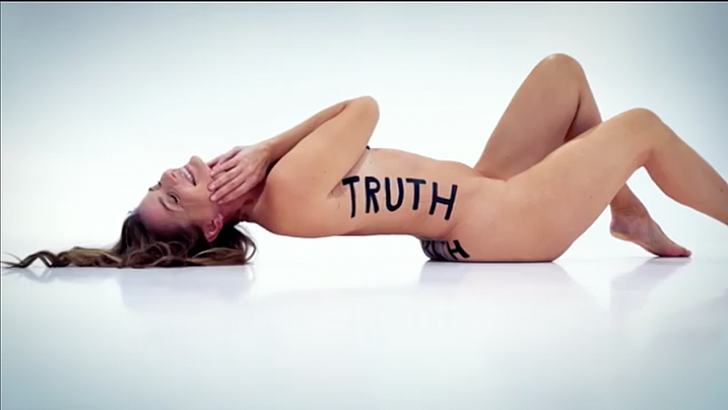Entertainment News – The #MeToo movement has made its way to the bikini-filled glossy pages of the annual Sports Illustrated Swimsuit Issue.
In between the usual images of sun and sand-soaked models mutely posing in the Caribbean surf, readers will find something a little different. This year’s magazine has a special feature showing a range of nudes shot in black and white — but instead of skimpy swimsuits, their bodies are adorned with empowering captions the women themselves chose, like “infinite,” “lover,” and “mother.”
The magazine said it had settled on the approach for the “In Her Own Words” section months before more than 80 women accused movie mogul Harvey Weinstein of sexual assault and harassment, and before the surge of #MeToo women whose tales of rape, exploitation, and harassment swept through entire industries, forcing the resignations and terminations of accused male predators. But Sports Illustrated was happy to be part of the same zeitgeist.
“I’m thrilled that this movement is going on because I feel like it’s going to change things for the better,” editor and 20-year Sports Illustrated veteran MJ Day told Vanity Fair.
Related: Aly Raisman talks about being a survivor in Sports Illustrated swimsuit issue
In an SI first, the swimsuit issue crew was all-female. The editor said she left the room so the models could be more authentic instead of feeling like they had to pose for her.
Despite these moves, not everyone is happy with how the magazine has thrust itself into the debate.
Companies have been exploiting counter-cultural movements for years in order to make their products seem cool and relevant. Sometimes it works, sometime it doesn’t. Dove seems to be doing fine leveraging body positivity to sell soap. But when Pepsi turned a white-washed version of a Black Lives Matter protest into an ad for soda pop, it was forced to pull the commercial amid a withering backlash.
Now, critics are examining Sports Illustrated’s approach.
“Those dark, simple words painted on pale flesh don’t so much give the impression of women speaking their truths as of women who cannot speak at all,” wrote Alexandra Schwartz in The New Yorker.
The special section, and the magazine itself, raises complicated questions during a volatile time for conversations about gender and power in our society.
Is getting paid for being beautiful and nearly naked inherently disempowering? Is having input into how photos of your flesh are marketed and sold automatically empowering? Or empowering enough? And will the reader even care?
Day told Vanity Fair she hopes the images will help change attitudes about how women are seen, while still staying true to what the magazine has celebrated since 1964.
“These are sexy photos,” Day said. “At the end of the day, we’re always going to be sexy, no matter what is happening. We’re Sports Illustrated Swimsuit.”
by BEN POPKEN, NBCNews.com

